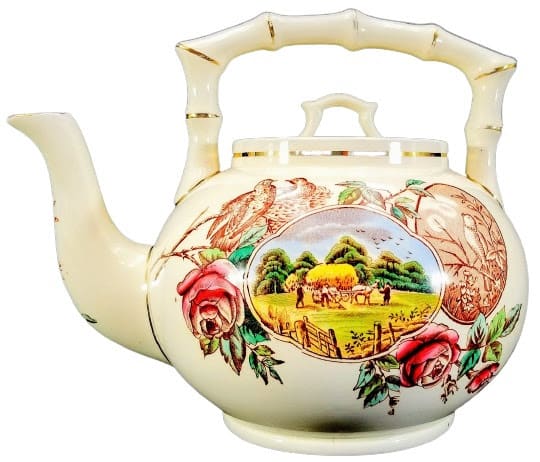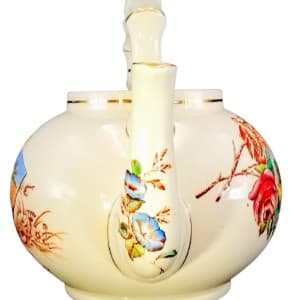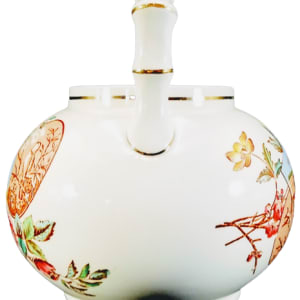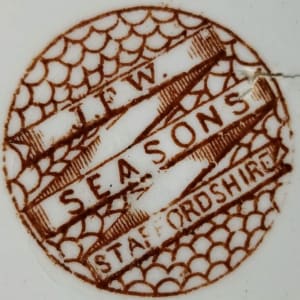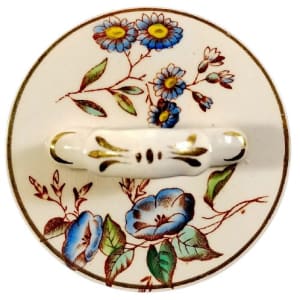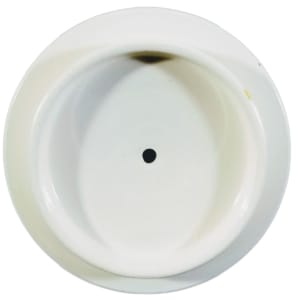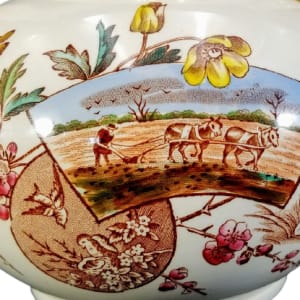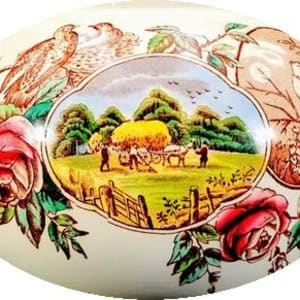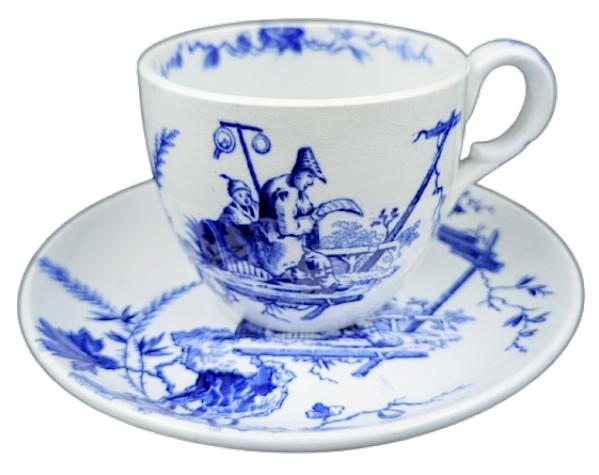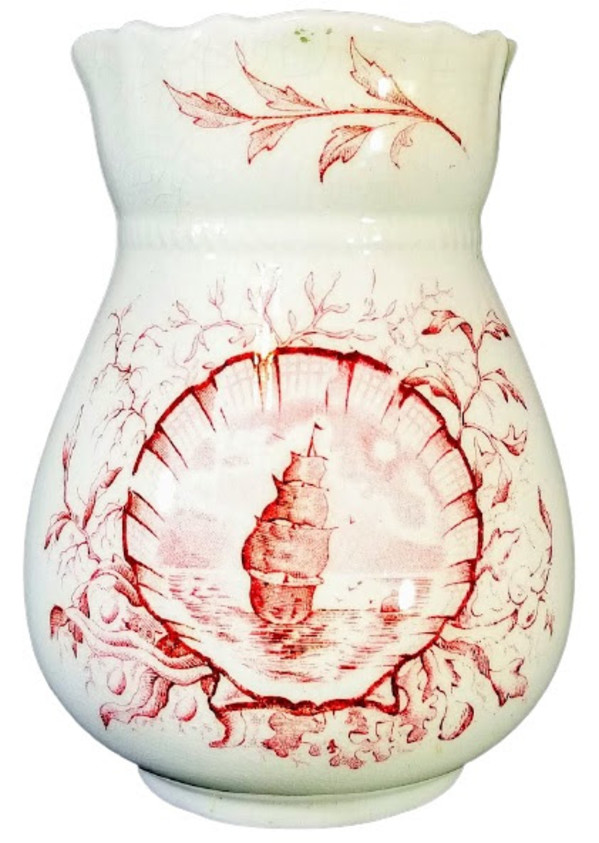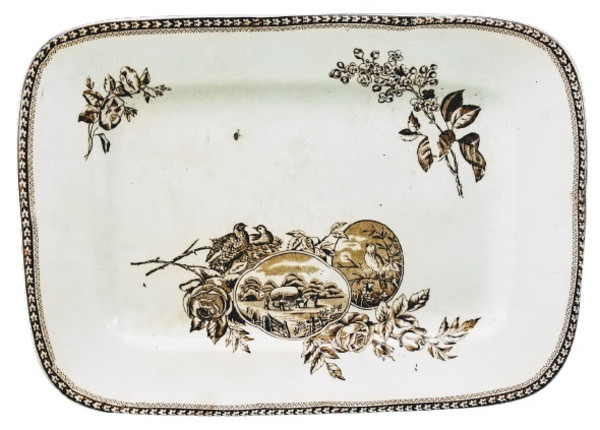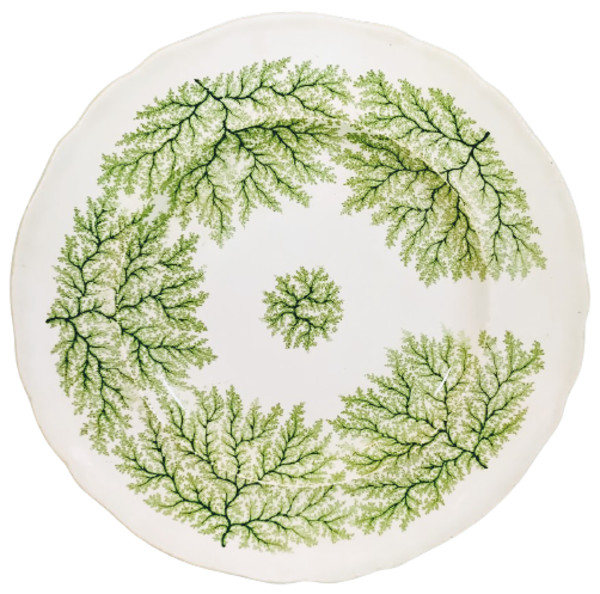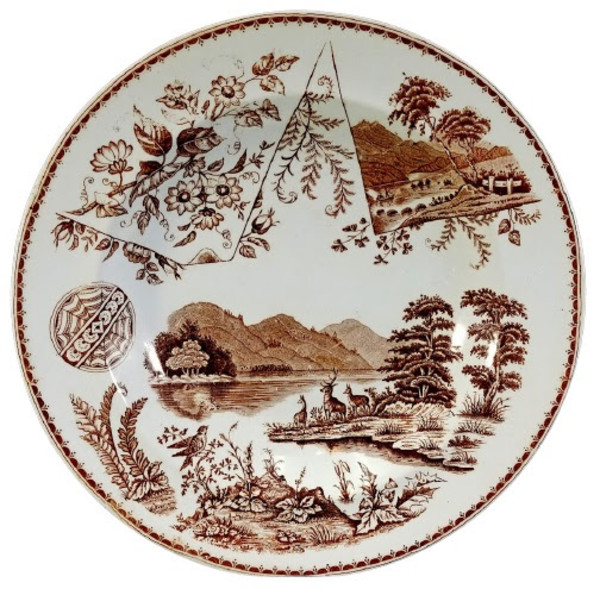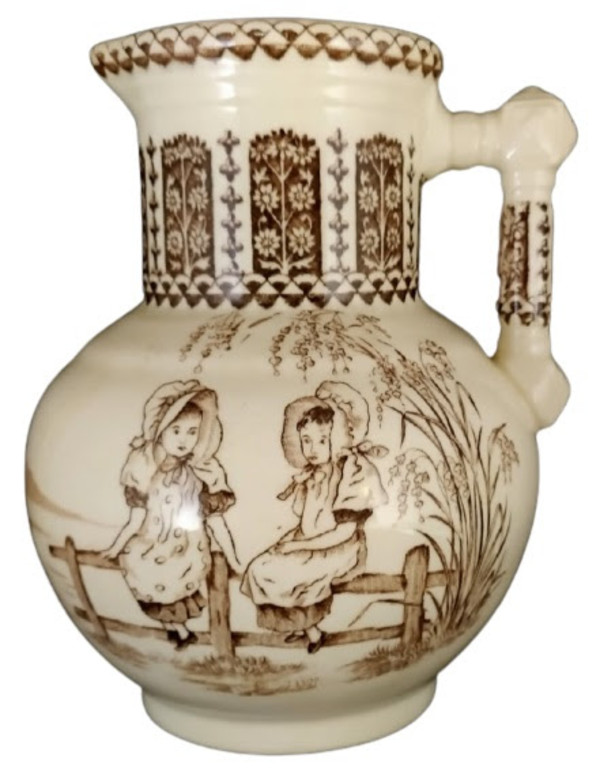- J. F. Wileman
- Seasons (Spring & Summer), c. 1869-1890
- Earthenware
- 8.25 x 5.5 x 7 in (20.96 x 13.97 x 17.78 cm)
-
Not For Sale
Teapot, 8.25 x 5.5 x 7 inches. Brown transfer with polychrome clobbering and gilding. Printed maker's mark for J. F. Wileman. This pattern features four motifs placed on both sides of the teapot, the lid, and the spout. On the spout is a sprig of morning glories and on the top of the lid is another sprig of morning glories paired with a sprig of daisies. On the spout right side are two overlapping cartouches laid over buttercups and cherry blossoms, with a patch of wildflowers to the right. The upper fan-shaped cartouche features a vignette of a farmer ploughing a field. The bottom circular cartouche features a songbird with its nest on a flowering branch with another songbird in flight above. On the spout left side are another two overlapping cartouches laid over lush roses with two birds and a nest to the upper left. The upper quatrefoil cartouche features a vignette of farmers harvesting hay. The bottom circular cartouche features a singing songbird perched in brush.
The Foley Potteries took their name from the Foley family who owned property in the neighborhood. They were built by John Smith of Fenton Hall about 1820. The first firm by whom they were worked was Elkin, Knight & Bridgwood. On the retirement of the latter, the style was changed to Knight & Elkin and subsequently (on the retirement of Mr. Elkin) to J. K. Knight alone, until 1853, when he was joined in partnership by the late Henry Wileman, wholesale china dealer, of London, the style being Knight and Wileman. On the retirement of Mr. Knight until his death in 1856, Mr. Wileman carried on the works alone until 1864, when his two sons succeeded him as J. & C. Wileman. In 1866 the partnership was dissolved, and from that time the business belonged to James F. Wileman. The goods produced were the usual granite ware, printed wares, lustres, Egyptian and shining black, and cream-colored wares. All of these were of the ordinary classes for household use and the great bulk of the trade was exported to the States, Panama, Australia, South Africa, Ceylon, Java, and India. The firm of Wileman & Co. was in business at the Foley Pottery, Fenton, Staffordshire from c. 1892 to 1925, when they were renamed Shelley.
- Subject Matter: Aesthetic (Cartouche)
- Collections: Aesthetic Transferware, J. F. Wileman
